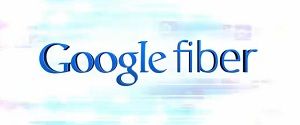Yup, Google Fiber is Coming to Austin

The second time is indeed the charm for Austin, Texas.
Austin missed its first chance to get Google Fiber when the Kansas Cities were selected in2010, but broke through this time. In what's been a poorly kept secret, Google and city officials confirmed Tuesday that Google Fiber and its bundle of broadband and TV services will be coming to Austin, with plans to start connecting homes in mid-2014. The deployment will pit Google Fiber against area incumbents Time Warner Cable and AT&T.
"We didn't give up…We've been working on it [getting Google Fiber] ever since," Austin Mayor Lee Leffingwell said during Tuesday's lovefest. "Google Fiber will change how we live and how we work in ways we don't even know about yet. But it will be for the better."
Like its approach in Kansas City, Mo.; and Kansas City, Kan.; Google Fiber will deploy services only to "Fiberhoods" (areas comprised of 250 to 1,500 homes) that meet certain demand criteria based on a percentage of homes that want the service and agree to pay a small registration fee. Google Fiber has already launched a Web site dedicated to the Austin project, noting that specific boundaries and neighborhood definitions will be announced later.
Google VP of access services and cable broadband pioneer Milo Medin said service pricing has not been settled for the coming Austin deployment. In the Kansas Cities, Google Fiber sells a cap-free 1 Gigabit per second broadband service for $70 per month and a broadband/video package for $120. Like it's done in K.C., Google Fiber also intends to offer a free 5 Mbps service to qualifying homes in Austin (they'll still have to spring for the initial connection fee) for seven years.
"We're here because speed matters," Medin said, lamenting the capabilities of today's access broadband networks and how much ISPs are charging on a dollar-per-megabit basis.
But it's not going to be free. In a report issued earlier this week, Sanford Bernstein analysts estimate that Google will spend $84 million to pass (not connect) the 149,000 homes targeted for the first phase of the deployment in the Kansas Cities. It further estimates that Google would have to spend $11 billion to pass 20 million homes – about 15 percent of all U.S. homes -- with its fiber network over a period of five years. And that's money spent before it would start to acquire or connect customers.
Multichannel Newsletter
The smarter way to stay on top of the multichannel video marketplace. Sign up below.
Census data shows that Austin has about 354,241 housing units and an estimated population of 820,611. Bernstein estimates that Google Fiber will spend about $500 per home passed in Kansas City, Mo. If that number is applied to all of Austin's housing units, Google Fiber would end up spending more than $177 million for that portion of the build out.
TW Cable is already facing off with Google Fiber in the Kansas Cities, and says it's ready for whatever Google Fiber ends up dishing out in Austin.
"With a scalable, state-of-the-art network already in the ground across Central Texas and our experienced engineers developing next-generation network enhancements, we stand ready for any new competitor to enter the market," the MSO said, in a statement. "We already provide fiber-based multi-gig speed for many commercial customers throughout our service areas, and for consumers, we offer several tiers of residential service designed to fit almost any budget or household need. We're prepared for added competition and believe that any innovation in broadband technology is good for all of us."
TW Cable's top end DOCSIS cable modem tier in Austin currently maxes out at 50 Mbps downstream, while its fiber-fed Carrier Ethernet product tailored for business customers delivers speeds up to 10 Gbps. TW Cable also markets a 75 Mbps DOCSIS 3.0 product in Dallas, and has introduced a 100 Mbps tier in Kansas City, where it's dueling with Google Fiber.
